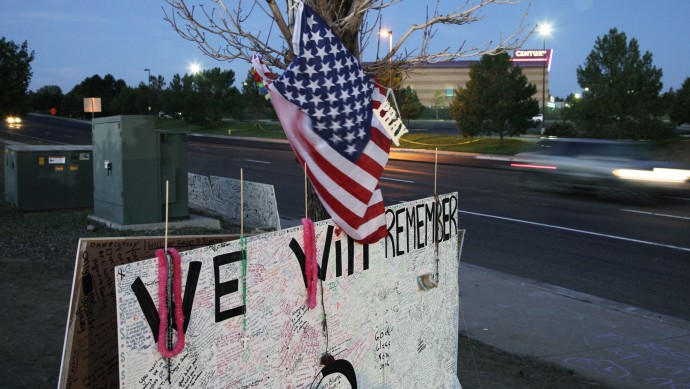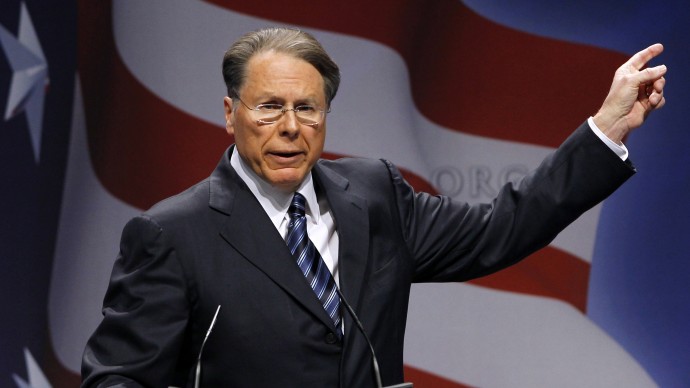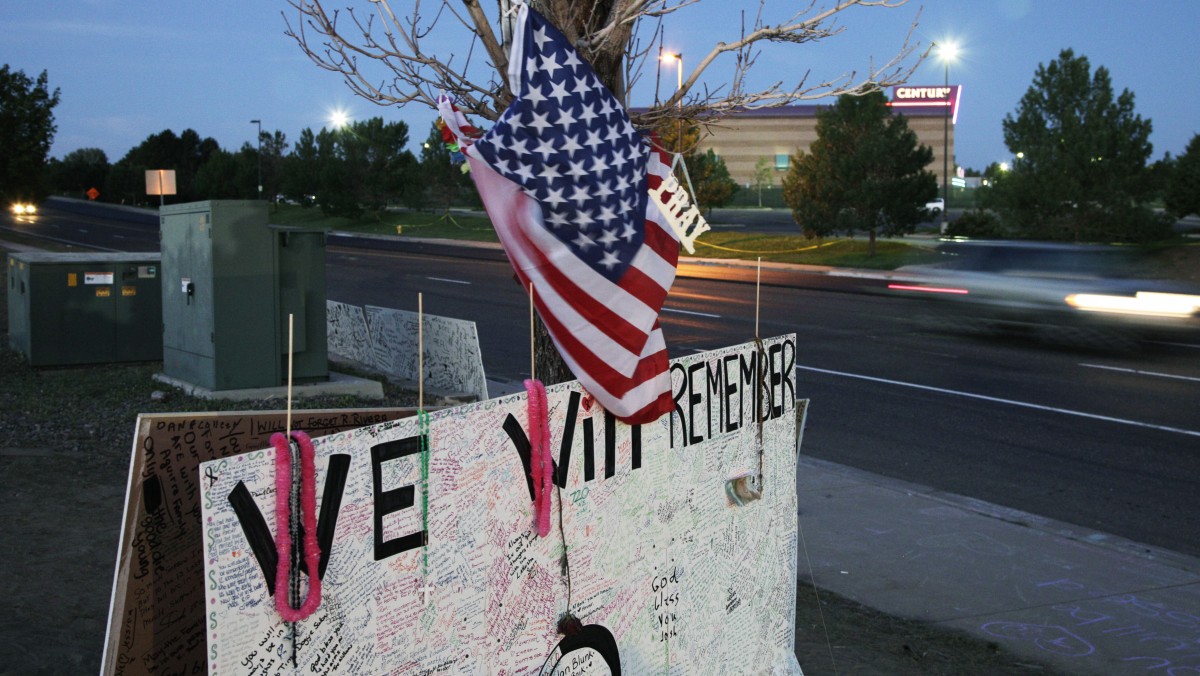
A small but growing debate has emerged in the wake of the mass shooting in Aurora, Colo., the largest in American history, in which 12 people died and 58 were wounded.
The question: Was it an act of terrorism?
Not according to federal authorities. The FBI said 24-year-old James Holmes, the only suspect, had no ties to known terrorist organizations. He didn’t act on religious or political grounds. He appeared to be a crazy lone wolf. And indeed, subsequent news reports have revealed that he sought therapy from a University of Colorado psychologist who specializes in schizophrenia, though it’s unclear whether he suffers from the mental disorder.
Even so, does that mean it wasn’t terrorism? Common sense would suggest otherwise. Survivors will surely feel lingering terror for years. Families of the dead unimaginably more so. And Aurora, a Denver suburb, now has a place in our national conscious next to the site of another terrorizing mass murder — Columbine, Colo.
If you define terrorism according to its intent, then Holmes wasn’t a terrorist. As far as we know, he didn’t enter the cineplex armed with an assault rifle, tear gas and head-to-toe body armor with the express purpose of sending a message.
But if you define terrorism according to its effects — the cost to individuals, society and the public sphere — then there’s a plausible case for calling it terrorism. It might not be the kind of terrorism we witnessed on Sept. 11, 2001, but merely noting a difference suggests that a complex phenomena like terrorism surely comes in various shades.
If this isn’t terrorism of a religious-political nature, as it was on Sept. 11, then perhaps we can call it something else. The law makes distinctions when someone is killed — homicide (first degree, second degree, etc.), manslaughter, wrongful death — so why not similar demarcations for terrorism. Indeed, the Daily Beast mapped 431 public shootings in the U.S. since 2005, suggesting that this may be crime that has yet to be properly defined.
Terrorism is a label used too loosely, and I don’t mean to encourage that. But there are at least two good, practical reasons for calling this terrorism beyond the debate over whether it is, in fact, terrorism.
One is to aid in preventing future massacres. A new report on the Fort Hood shootings in 2009 shows that authorities failed to properly investigate shooter Nidal Hasan due to fears of appearing to profile Muslims. As Dawinder S. Sidhu, a law professor at the University of New Mexico, noted in the Baltimore Sun, “If we weren’t so reluctant to label as terrorism horrific acts like the Colorado theater shootings, we might not be so concerned about appearing bigoted against Muslims.”
A terrorist label may also act as a deterrent, Sidhu writes:
To call Mr. Holmes a terrorist would be to acknowledge the social significance of his acts, deny him any political or personal cover for those acts, and to signal the extent of the public’s condemnation. … The “terrorist” label would … impose an additional social cost to their actions and may undermine any permanent legacy that such mass murderers are ostensibly seeking.
The other good, practical reason dwells in the realm of politics. If what happened in Aurora were viewed as terrorism of a kind, then we might at last break the stalemate in the debate over guns. President Barack Obama made it clear that he had no plan to revisit the ban on assault rifles allowed to expire by the George W. Bush administration, and the reason for that, I’d wager, is that he has no desire to arouse the already feverish radical rightist view that he is a Muslim-Marxist dictator hellbent on taking away all of their guns.
 This is only a slight hyperbole. The National Rifle Association’s official position is that Obama’s reelection would mean the death of the Second Amendment, even though the NRA has been in favor of gun control in the past and, according to some, is still in favor of it.
This is only a slight hyperbole. The National Rifle Association’s official position is that Obama’s reelection would mean the death of the Second Amendment, even though the NRA has been in favor of gun control in the past and, according to some, is still in favor of it.
So even if the president were to push forward on gun control on reasonable grounds that most voters would approve of — a ban on assault rifles and other military-grade weapons, criminal background checks, firearms training, etc. — he’d still be seen as representing one side of an endless debate locked in eternal constitutional struggle with the other.
However, a label of terrorism might change that.
Then we cease talking about gun control versus gun rights and begin talking about national security, and neither the NRA nor the Congressional Republicans in its thrall will stand up for terrorism or stand in the way of a president seeking to protect the citizenry.
Of course, political opponents will quibble over the definition of terrorism, as I have here, but that’s a losing political argument that relies on legal technicalities to make the case instead of gut-check intuition and common sense. Anyone can see Aurora was a terrifying moment and will be for a long time. If Obama and Congressional Democrats led the way in calling it by its true name, then we might finally get the gun law reform we badly need.


